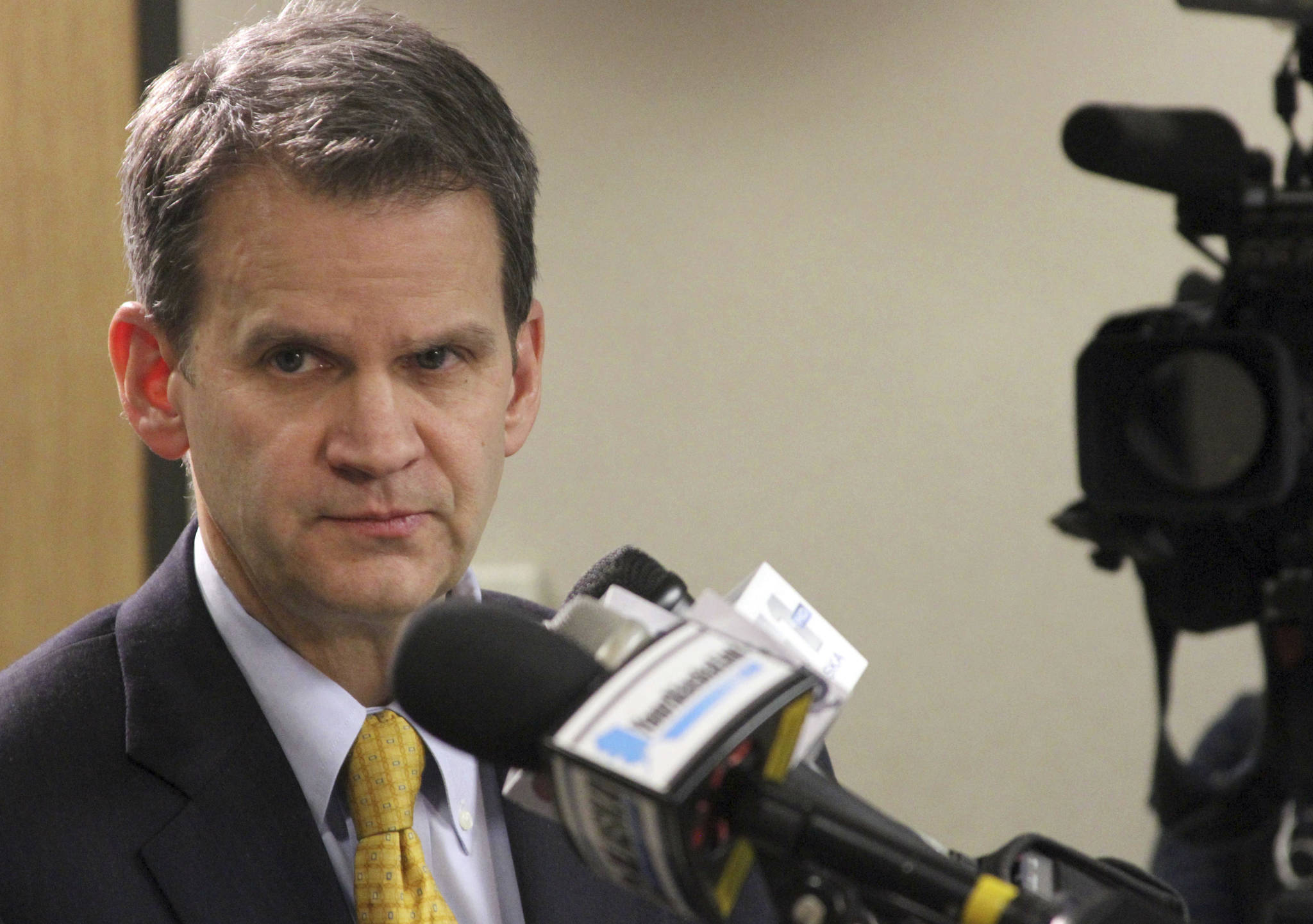ANCHORAGE — Gov. Bill Walker’s latest proposal for closing the gap between state revenue and spending is a limited tax on payroll wages and self-employment income.
Walker, an independent, is calling the proposal a modified “head tax.” The matter will be addressed at an Oct. 23 special session, the fourth this year, that Walker announced Friday. A crime bill is also on the agenda.
The Republican-led Senate earlier this year rejected a House-passed income tax. The state is grappling with a multibillion-dollar deficit amid continued low oil prices.
Walker’s proposal would partially close the gap. It calls for a 1.5 percent tax on wages. The tax would be capped at the higher amount of $2,200 or double the amount of the previous year’s Alaska Permanent Fund Dividend, the annual checks sent to Alaska residents from a savings account created from the state’s oil earnings.
Under the tax plan, if the dividend was $1,100, no one would be taxed more than $2,200. To reach that level of tax, person would have to earn $147,000.
“In effect they would be returning their dividend and adding $1,100,” said Sheldon Fisher, commissioner of the Alaska Department of Revenue, at a briefing for reporters.
A person earning $25,000 would have a tax obligation of $375 but would net $725 by receiving the permanent fund check. A person earning $50,000 would have a tax obligation of $750 and would keep $350 from a dividend check.
State Sen. President Pete Kelly, R-Fairbanks, said the Senate Majority supports meeting to address a crime bill but believes fiscal problems are best addressed by reducing government budgets and instituting a spending limit.
“We want to make it clear that any ‘complete plan’ to address our fiscal problem cannot solely reach into Alaskans’ pockets for more government money, but must include budget reductions,” he said in prepared statement.
Walker in his announcement said Alaska state spending has fallen 44 percent over four years and the state has spent more than $14 billion from savings. “With the downturn in oil prices, however, it’s clear that we must find a new source of revenue to pay for troopers, teachers, transportation and other essential services,” he said.
Fisher said the governor sees great benefit to taking up one piece of potential future revenue because it would give confidence to investors and enhance Alaska’s credit rating.
Walker’s proposed tax would be paid by nonresidents, who earned more than $2.7 billion in 2015.
Tax collection would be the responsibility of employers much as they now withhold money for Social Security or unemployment insurance, Fisher said. The self-employed, such as commercial fishermen, would pay an amount based on their earnings.
For the fiscal year ending June 30, the state is forecasting a budget gap of $2.6 billion. Lawmakers in recent years have filled the budget gap by spending state savings accounts. Tapping the Constitutional Budget Reserve and the Statutory Budget Reserve will not be an option in the future, Fisher said.
They hold a couple of billion dollars, he said, which is needed for cash-flow purposes and emergencies.

